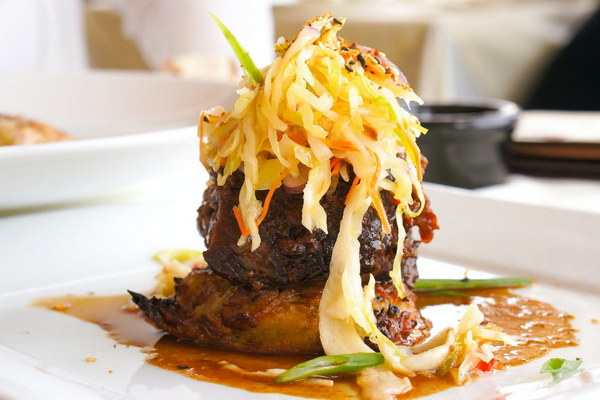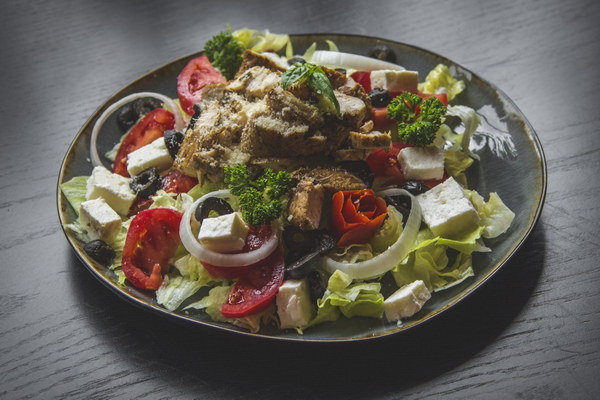Healing Head Trauma A Journey to Recovery through Chinese Tonification
Introduction:
Head injuries can be daunting and challenging to recover from, but with the right approach, one can navigate the healing process effectively. Chinese tonification, a traditional method of strengthening the body and promoting recovery, has been used for centuries to aid in the healing of head trauma. This article explores the concept of tonification and its benefits in healing head trauma.
I. Understanding Head Trauma:
Head trauma refers to any injury to the head that causes damage to the brain or surrounding structures. This can range from mild concussions to severe traumatic brain injuries (TBIs). Symptoms can include headaches, dizziness, confusion, and memory issues. Recovery from head trauma can be a lengthy process, and it is crucial to adopt a comprehensive approach to healing.
II. Chinese Tonification: A Brief Overview:
Chinese tonification is a holistic approach that aims to strengthen the body's vital energy, known as Qi (chee). By balancing and enhancing Qi, tonification supports overall health and promotes healing. This method involves various practices such as herbal medicine, acupuncture, diet, and exercise, all designed to boost the body's natural recovery process.
III. Benefits of Chinese Tonification for Head Trauma:
1. Enhanced Brain Function: Chinese tonification can improve cognitive functions such as memory, attention, and concentration, which are often affected by head trauma. By strengthening the brain's energy, tonification helps in regaining lost functions.
2. Reduced Headaches: Headaches are a common symptom of head trauma. Chinese tonification can alleviate headache pain by addressing the root cause of the problem, rather than merely masking the symptoms.
3. Improved Sleep: Head trauma can lead to sleep disturbances, making it difficult for individuals to rest and recover. Tonification can promote better sleep by balancing the body's energy and addressing any underlying imbalances.
4. Enhanced Immune System: A weakened immune system can prolong the recovery process and make individuals more susceptible to infections. Chinese tonification strengthens the immune system, aiding in the overall healing process.
IV. Practical Tips for tonifying the body after head trauma:
1. Acupuncture: Acupuncture can help balance the body's energy and reduce symptoms such as headaches and dizziness. It can also improve sleep and enhance cognitive functions.
2. Herbal Medicine: Chinese herbs can be used to support the healing process and improve overall health. Consult with a qualified practitioner to determine the most suitable herbal formula for your condition.
3. Diet: A balanced diet rich in nutrients can help support recovery. Incorporate foods high in antioxidants, such as fruits and vegetables, and omega-3 fatty acids, found in fish and nuts, to boost brain health.
4. Exercise: Gentle exercises, such as walking or yoga, can improve circulation and promote healing. However, it is essential to consult with a healthcare professional before starting any exercise regimen.

5. Stress Management: Stress can exacerbate symptoms of head trauma. Practices such as meditation, deep breathing exercises, and mindfulness can help manage stress and promote healing.
Conclusion:
Healing from head trauma can be a complex and challenging journey. By incorporating Chinese tonification into the recovery process, individuals can enhance their overall well-being and improve their chances of a full recovery. By addressing the root cause of the problem and supporting the body's natural healing abilities, tonification offers a promising approach to healing head trauma. Remember to consult with healthcare professionals before starting any treatment or exercise regimen.

![Discover the Hidden Gem of Jiyuan Jiyuan Rejuvenating Beauty and Skin Care Shop at [Address]](http://img.bluepurple.cn/a/养生/256/Discover-the-Hidden-Gem-of-Jiyuan-Jiyuan-Rejuvenating-Beauty-and-Skin-Care-Shop-at-Address.jpg)







